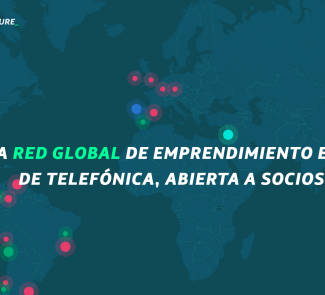Why do we talk of a start-up from Silicon Valley, then go on to refer to a spin-off developed at the Spanish scientific research council (CSIC)? What is the difference between these innovative companies?
Peter Drucker the Austrian-born management consultant, educator, and author, is known for the famous phrase «The best way to predict the future is to create it«. In the field of innovation and technology, there are many who try to imagine what their lives will be like in the future and therefore place their hopes and put their effort into setting up a company. For all those entrepreneurs who are interested in introducing a business initiative, today we at the Think Big blog have defined the keys that differentiate a startup from a spinoff.
In the business world, there is an infinite number of terms that are unknown to the majority and that at times we overuse. In the technological field, there are numerous occasions when mention is made of the great projects from a startup from Silicon Valley (or any other capital of innovation), and then the conversation leads once again to the new developments achieved by a spinoff from the Spanish scientific research council (CSIC, Consejo Superior de Investigación Científica).
Where they are born is key when asking what they are
The origin is the first significant distinguishing feature that separates a startup from a spinoff. As Jesús Lacoste explains in his blog, the creation of a spinoff takes place within another organisation, which can be a firm, an academic institution or a research institute.

There are various examples of spinoff companies which came to life in universities. Grupo Hespérides Biotech, for example, was set up at the Pablo de Olavide University and was the first technology-oriented company of the Seville institution. Created by young students when they were in the third year of their degree, their star product is called Speriens and is a drink similar to beer, but made from fermenting orange juice.
Spinoffs are at work in almost all the fields imaginable. The Spanish Foundation for Science and Technology (FECYT, Fundación Española para la Ciencia y la Tecnología) brings together some of the leading Spanish spinoff companies. For example, Galchimia, the result of the work of scientists from Santiago de Compostela University, specialises in manufacturing chemical products, while Scytl develops cryptographic software from studies commenced at the Autonomous University in Barcelona.
Startups are also born from innovative business ideas, but, unlike spinoffs, they are not created inside an institution. They tend to exploit a market niche with great potential, although also limited as regards time.
The reasons why they were created also differ
Where each company is born tends to determine the reasons why it was created. In general, a spinoff tries to take advantage of several purposes, such as retaining talent, developing and exploiting new services and technologies discovered at the institution or company and seeking new business opportunities.
A startup, in contrast, is closely linked to the techie sector, in that they are attempting to launch a totally new and groundbreaking service, technological accessory or application. One of the clearest examples was the creation of Twitter in 2006. Launched under the beta Twttr platform, the product was totally different to what had existed up to that point. And it was a hit.

There are those who apply an experimental vision to define a start-up. Because, in addition they can be deemed (undemonstrated) ‘hypotheses’, whereas consolidated companies are described as theories. Given their embryonic status, and their ‘isolated’ birth, without a parent company to shelter them (unlike spin-offs), the risk of failure is enormous. However, the chance to make something new, to succeed in the market, like Facebook or Google, does exist.
The differences that separate spinoffs from startups are fairly big, but there is no doubt that both business initiatives share the same motivation: to make a dream come true and to manage to transform an idea so that it is enhanced and has an application in society.
Pictures | Grupo Colombio (Wikimedia), Boston University, Kropekk (Pixabay)









